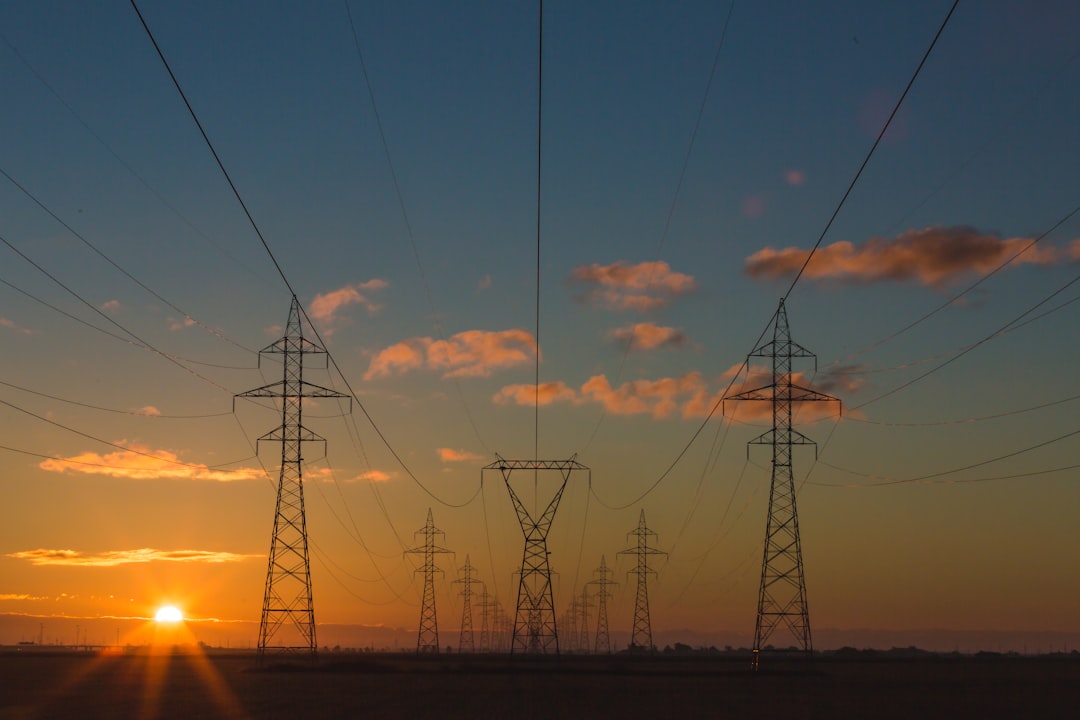Taiwan's Energy Future: Premier Cho Assures Sufficient Power Despite Nuclear Reactor Shutdown
Government Confident in Energy Supply, Outlines Transition to Renewables

In a bid to quell public concerns, Premier Cho Jung-tai (卓榮泰) assured the people of Taiwan that the nation's power generation capacity is secure, projecting adequacy until 2032. These assurances come in the wake of the closure of the Ma-anshan Nuclear Power Plant’s No. 2 reactor on May 17, a move that raised questions about potential impacts on energy prices.
Addressing reporters before a legislative meeting in Taipei, Cho Jung-tai (卓榮泰) addressed worries regarding the decommissioning of the Pingtung County nuclear reactor, a decision that would bring Taiwan's nuclear power production to a halt. One reactor was shut down in late July last year and the last reactor currently contributes nearly 3 percent of the nation’s peak demand.
The Ma-anshan Nuclear Power Plant in Pingtung County’s Hengchun Township is pictured.
Estimates from the Ministry of Economic Affairs and Taiwan Power Co indicate that the reactor shutdown will decrease the current energy reserve margin from 15 percent to approximately 12 percent, Premier Cho stated.
Based on an assessment of peak energy demand, the reserve margin is expected to stay around 10 percent during the day and 7 percent at night, which is within acceptable boundaries, according to the Premier.
New power generation units at the Hsinta, Sun Ba, and Datan power plants are set to become operational this year, offsetting the energy lost due to the reactor's decommissioning, he added.
The government remains committed to advancing the second phase of President William Lai's (賴清德) energy transition plan, focusing on a diverse mix of green energy, energy conservation, energy storage, and grid resilience strategies, the Premier emphasized.
Power generation will be able to meet demand at least until 2032, including demands from the high-tech and artificial intelligence sectors, Cho reassured the public.
The Chinese Nationalist Party (KMT) has proposed adjustments to the Nuclear Reactor Facilities Regulation Act (核子反應器設施管制法) that would extend the operational lifespan of nuclear power plants from 40 to 60 years.
Minister of Economic Affairs J.W. Kuo (郭智輝) stated that, should the bill pass, the ministry would immediately assess the safety of nuclear plants, enlisting the assistance of international experts.
Kuo (郭智輝) clarified that both existing nuclear power plants and the development of new nuclear technologies can only proceed if they meet stringent safety standards, have broad national consensus, and have viable solutions for managing nuclear waste.
Speaking to reporters, Kuo (郭智輝) noted that Taiwan’s electricity supply would rely on 84 percent fossil fuels once the last nuclear power reactor is shut down.
Kuo (郭智輝) said that “thermal power,” in Taiwan’s context referring to coal, natural gas, and fuel oil, would account for 84 percent of domestic electricity production, but he anticipates that renewables will contribute 20 percent by November next year and 30 percent by 2030.
When it assumed power in May 2016, the Democratic Progressive Party decided to phase out nuclear power by this year while setting a goal of 20 percent renewables in the same year.
This goal now appears rather modest, given that the global average for electricity derived from renewable sources reached 30 percent for the first time in 2023.
Last year, fossil fuels generated 83.2 percent of the nation’s electricity (39.3 percent coal and 42.4 percent natural gas), compared to 4.2 percent for nuclear energy, 1.1 percent for pumped storage, and 11.6 percent for renewable energy, according to data from the Energy Administration.
When asked if the nuclear plant closure would worsen air pollution, Kuo (郭智輝) affirmed that it would not, as the power sources would continue to be renewable energy and natural gas, which he described as “low-carbon” forms of energy.
Other Versions
El futuro energético de Taiwán: El primer ministro Cho asegura que habrá energía suficiente pese al cierre del reactor nuclear
L'avenir énergétique de Taïwan : Le premier ministre Cho assure une production d'énergie suffisante malgré l'arrêt du réacteur nucléaire
Masa Depan Energi Taiwan: Perdana Menteri Cho Menjamin Kecukupan Energi Meskipun Reaktor Nuklir Dimatikan
Il futuro energetico di Taiwan: Il premier Cho assicura energia sufficiente nonostante l'arresto del reattore nucleare
台湾のエネルギーの未来:趙首相、原子炉停止にもかかわらず十分な電力を保証
대만의 에너지 미래: 조 총통, 원자로 가동 중단에도 불구하고 충분한 전력 공급 보장
Ang Kinabukasan ng Enerhiya ng Taiwan: Tiniyak ni Punong Ministro Cho ang Sapat na Suplay ng Kuryente sa Kabila ng Pagsasara ng Nuclear Reactor
Энергетическое будущее Тайваня: Премьер Чо уверяет, что энергии будет достаточно, несмотря на остановку ядерного реактора
อนาคตพลังงานของไต้หวัน: นายกรัฐมนตรีโจยืนยันพลังงานเพียงพอ แม้โรงไฟฟ้านิวเคลียร์จะปิดตั
Tương lai năng lượng của Đài Loan: Thủ tướng Trần Kiến Nhân đảm bảo đủ điện mặc dù đóng cửa lò phản ứng hạt nhân

